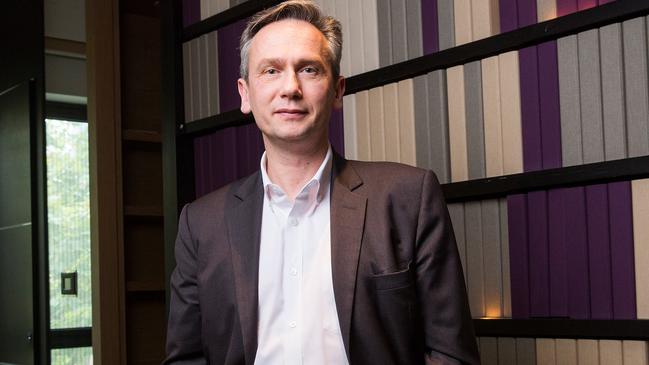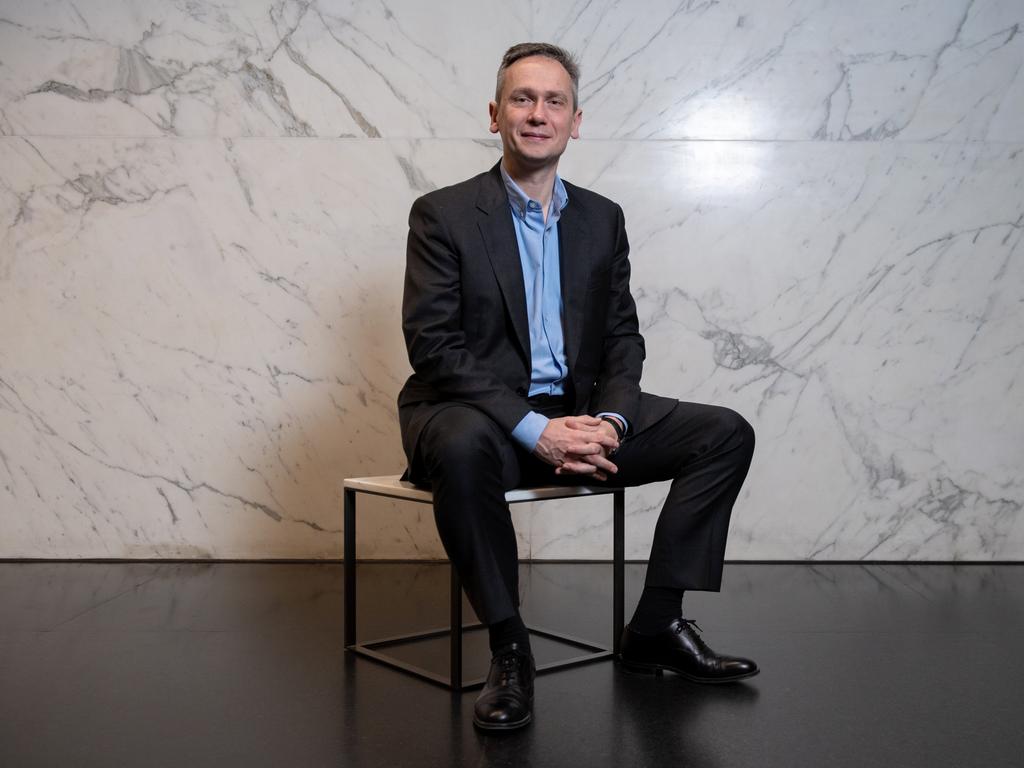Rio Tinto CEO Jean Sebastien Jacques steps down after Juukan Gorge disaster
Rio Tinto’s Juukan Gorge catastrophe has claimed the scalps of chief executive Jean Sebastien Jacques, Chris Salisbury and Simone Niven.

Rio Tinto’s board has bowed to the shareholder fury, with chief executive Jean Sebastien Jacques iron ore boss Chris Salisbury and corporate affairs chief Simone Niven all to depart the company.
Rio announced the decision after mounting pressure to dismiss the trio over the destruction of the Juukan Gorge heritage sites in WA in May.
Mr Salisbury will step down from his role running Rio’s iron ore division with immediate effect and will be paid through to the end of December, as will Ms Niven, who will be given time to complete an “orderly transition of her responsibilities”.
Rio said Mr Jacques would remain in his role until a permanent successor was appointed.
Following ongoing criticism Rio’s board is too London-centric, one of its three Australian-based directors — former Macquarie banker Simon McKeon — will be appointed as a Senior Independent director.
Speaking to The Australian on Friday, Rio chairman Simon Thompson stopped short of admitting its board had failed to judge the depth of community and stakeholder anger over the destruction of the shelters in its initial response to the internal review of the debacle, which merely stripped Mr Jacques, Mr Salisbury and Ms Niven of about $7m worth of short-term bonuses.
“The question for us was who was best placed to lead the necessary changes. And the point of our engagement over the last couple of weeks was to listen to the views of our stakeholders, and it became clear in our engagement that this question of individual accountability really was hindering our ability to rebuild trust,” he said.
“And if those three individuals do not have the confidence of critical stakeholders to lead the required changes then clearly we have to move on and we have to make sure we put people in those roles who will have that confidence and we can start repairing the damage that has been done to our reputation and to our relations with the traditional owners.”
At 10.20am Rio shares were trading down 0.5 per cent at $99.93 each following the announcement.
Mr Thompson, who only weeks ago was defending his key executives as the best people to lead Rio through its crisis, said the company had listened to stakeholder concerns on the issue.
“What happened at Juukan was wrong and we are determined to ensure that the destruction of a heritage site of such exceptional archaeological and cultural significance never occurs again at a Rio Tinto operation,” he said in a statement.
“We are also determined to regain the trust of the Puutu Kunti Kurrama and Pinikura people and other Traditional Owners. We have listened to our stakeholders’ concerns that a lack of individual accountability undermines the Group’s ability to rebuild that trust and to move forward to implement the changes identified in the Board Review.”
The management clean-out came after the federal government’s $160bn Future Fund added its voice to the push to force Rio’s board to take stronger action. In a rare move, representatives of the sovereign wealth fund are understood to have confronted Mr Thompson with their concerns in recent days.
The direct intervention of the Future Fund carries the weight of a substantial investment in the company. It held $366.2m worth of shares in the company at June 30, 2019, according to its own disclosures. But it also has a $200bn presence in the market, including both its own funds and the management responsibility for other government funds including the Medical Reserve Fund, Aboriginal and Torres Strait Islander Land and Sea Fund, Disability Care Fund, Future Drought Fund and Education Investment Fund.
That means its opinions also carry an outsize weight with the dozens of fund managers it uses to manage its portfolio of both debt and equities, including market giants such as BlackRock, UBS and Macquarie.





